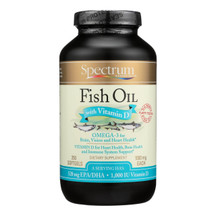Posted by National Institute of Mental Health on Dec 31st 2024
Understanding Depression and Natural Remedies for Relief

Depression is a common yet serious mental health disorder that affects millions of people worldwide. It manifests through persistent feelings of sadness, hopelessness, and a loss of interest in activities once enjoyed. Recognizing the signs and symptoms is crucial for seeking help and finding effective treatments. Fortunately, there are natural remedies that can complement traditional therapies and help manage depression.
What is Depression?
Depression, or major depressive disorder, is characterized by a range of emotional and physical symptoms that interfere with daily life. Common signs include:
- Persistent sad or empty mood
- Loss of interest in hobbies and activities
- Feelings of hopelessness or worthlessness
- Fatigue and lack of energy
- Difficulty concentrating or making decisions
- Changes in sleep patterns (insomnia or oversleeping)
- Appetite changes leading to weight fluctuations
- Physical aches or pains without a clear cause 1 3 6 .
These symptoms can last for weeks or even months, significantly impacting one’s quality of life.
Natural Remedies for Depression
While professional treatment is essential for managing depression, many individuals seek natural alternatives or complementary therapies. Here are some effective natural remedies:
1. Herbal Supplements
- Saffron: Research suggests that saffron can be as effective as conventional antidepressants in reducing symptoms of depression. Its active compounds help boost serotonin levels in the brain, improving mood 2 .
- St. John's Wort: This herb has been traditionally used to alleviate depressive symptoms by increasing serotonin levels. However, it may interact with certain medications, so consult a healthcare provider before use 4 .
2. Essential Oils
- Lavender: Known for its calming properties, lavender essential oil can reduce anxiety and promote relaxation. Using it in aromatherapy may help alleviate stress and improve sleep quality 2 .
3. Nutritional Support
- Omega-3 Fatty Acids: Found in fatty fish like salmon and walnuts, omega-3s are linked to improved mood and cognitive function. Incorporating these into your diet can support mental health 4 .
- Vitamin D: Often referred to as the "sunshine vitamin," vitamin D deficiency has been associated with depression. Supplementing with vitamin D can help restore levels and improve mood, especially in those with limited sun exposure 2 .
4. Dietary Choices
Incorporating specific foods into your diet can also aid in managing depression:
- Fruits and Vegetables: Rich in antioxidants and essential nutrients, these foods combat oxidative stress linked to depression.
- Whole Grains: Foods high in fiber help maintain stable blood sugar levels, which can positively affect mood.
5. Lifestyle Changes
Making small adjustments to your daily routine can have a significant impact on mental health:
- Regular Exercise: Physical activity boosts endorphins, which can elevate mood and reduce feelings of anxiety 4 .
- Adequate Sleep: Prioritizing good sleep hygiene helps regulate mood and energy levels.
- Social Connections: Spending time with friends or loved ones can provide emotional support and reduce feelings of isolation.
Conclusion
While depression is a complex condition requiring professional intervention, natural remedies can play a supportive role in managing symptoms. Incorporating herbal supplements, essential oils, nutritious foods, and healthy lifestyle choices can enhance overall well-being. If you or someone you know is struggling with depression, it’s important to seek help from a healthcare provider to create a comprehensive treatment plan tailored to individual needs. Remember, you are not alone, and there are effective ways to find relief from depression.

